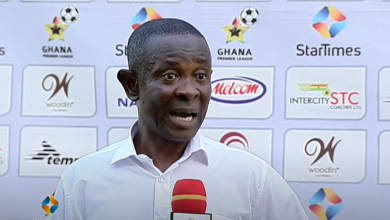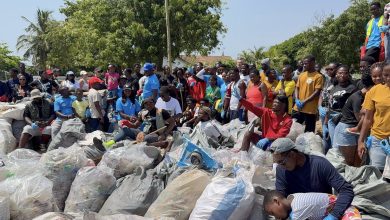
All Metropolitan, Municipal and District Assemblies (MMDAs) that use any District Road Improvement Programme (DRIP) machines in the regional pool must return them to the regional coordinating councils (RCCs) after use.
Although many of the DRIP machines were allocated to the various districts, key ones were in the custody of the regional coordinating councils (RCCs) so that districts could apply and access them.
Speaking in Tamale at the opening of a two-day orientation and training programme for District DRIP Coordinators from the Northern and Savannah regions, the National Coordinator of DRIP, Nii Lante Vanderpuye, emphasised discipline and commitment in managing the equipment to ensure the successful and sustainable implementation of the initiative.
He said the programme focused on building the capacity of all personnel involved.
“We want to motivate and inspire you to be patriotic and nationalistic so you handle this responsibility with utmost commitment to protect the national interest,” he stated.
Sustainability
Mr Vanderpuye added that the sustainability of the programme would depend largely on how coordinators and assemblies applied the training they received and how responsibly they managed the shared equipment.

Ali Adolf John (3rd from right), Northern Regional Minister; Nii Lante Vanderpuye (3rd from left), National DRIP Coordinator, with some MMDCEs
He added that misuse, neglect or hoarding of the machines would not only delay development in other districts, but also undermine the confidence of government and development partners in the initiative.
The former Minister of Local Government and Rural Development pointed out that the RCC system of equipment pooling was designed to ensure fairness and efficiency, stressing that no district should attempt to monopolise the machinery at the expense of others.
“When one assembly refuses to return a machine, it automatically denies another community the opportunity to have its roads improved. That is unfair and against the very spirit of national service,” he stressed.
Mr Vanderpuye stressed that the DRIP was not just about machines and roads, but about building a culture of accountability, patriotism and shared responsibility.
“The DRIP is a test of our collective discipline. If we fail to manage these resources responsibly, it means we are not ready for the bigger responsibilities of nation-building.
“But if we succeed, it will demonstrate that MMDAs can be trusted with national resources for the benefit of the people,” the National Coordinator of DRIP said firmly.
He, therefore, urged coordinators to become champions of accountability in their respective districts and to lead by example in reporting, monitoring, and ensuring the timely return of all DRIP equipment.
Worry
The Northern Regional Minister, Ali Adolf John, expressed worry over the reluctance of some assemblies to release key equipment, including low beds and wheel loaders, which were supposed to be stationed at the RCC in a central pool for onward allocation to districts when the need arose.
Such practice, he said, was depriving other assemblies from assessing the equipment for urgent needs.
“The DRIP machines were allocated to the various districts, but some key equipment was to be stationed at the RCC so that at any point in time, any district that required it would have access.
“Unfortunately, some assemblies are reluctant to return them after they pick them up for use,” he pointed out.
Mr John warned that punitive measures would be taken against any assembly that failed to comply with the directive.
“I have warned that any district that takes any of the equipment and does not return it will attract severe sanctions,” he stressed.
The participants were equipped with the requisite knowledge on how to effectively manage the equipment as part of efforts to enhance road infrastructure in their respective districts.
Background
In February this year, President John Dramani Mahama appointed Nii Lante Vanderpuye, a former Member of Parliament for Odododiodoo, as the National Coordinator for DRIP.
Former President Nana Akufo-Addo unveiled the fleet of 2,240 units of road construction equipment on July 31, last year, to decentralise development and ensure that every corner of the country benefits from good road infrastructure.
The equipment includes motor graders, backhoe site masters, rollers, wheel loaders, bulldozers, tipper trucks, concrete mixers, water tankers and lowbed trucks.
A large part of the equipment was assembled in Ghana, which employed 2,000 local hands with support from the 48 Engineer Regiment of the Ghana Armed Forces.
DRIP was designed to empower MMDAs with the resources and equipment necessary to rehabilitate and maintain roads within their respective jurisdictions.
Its management was to be overseen by a four-member committee at each metropolitan, municipal or district assembly, comprising a technical officer from the Ministry of Local Government, Decentralisation and Rural Development, one technical officer from the Ministry of Roads and Highways, and one person from the 48 Engineer Regiment of the Ghana Armed Forces, all under the overall chairmanship of Metropolitan, Municipal and District Chief Executives.
Their mandate was to ensure the highest standards of quality and accountability in the execution of road projects across the nation.



